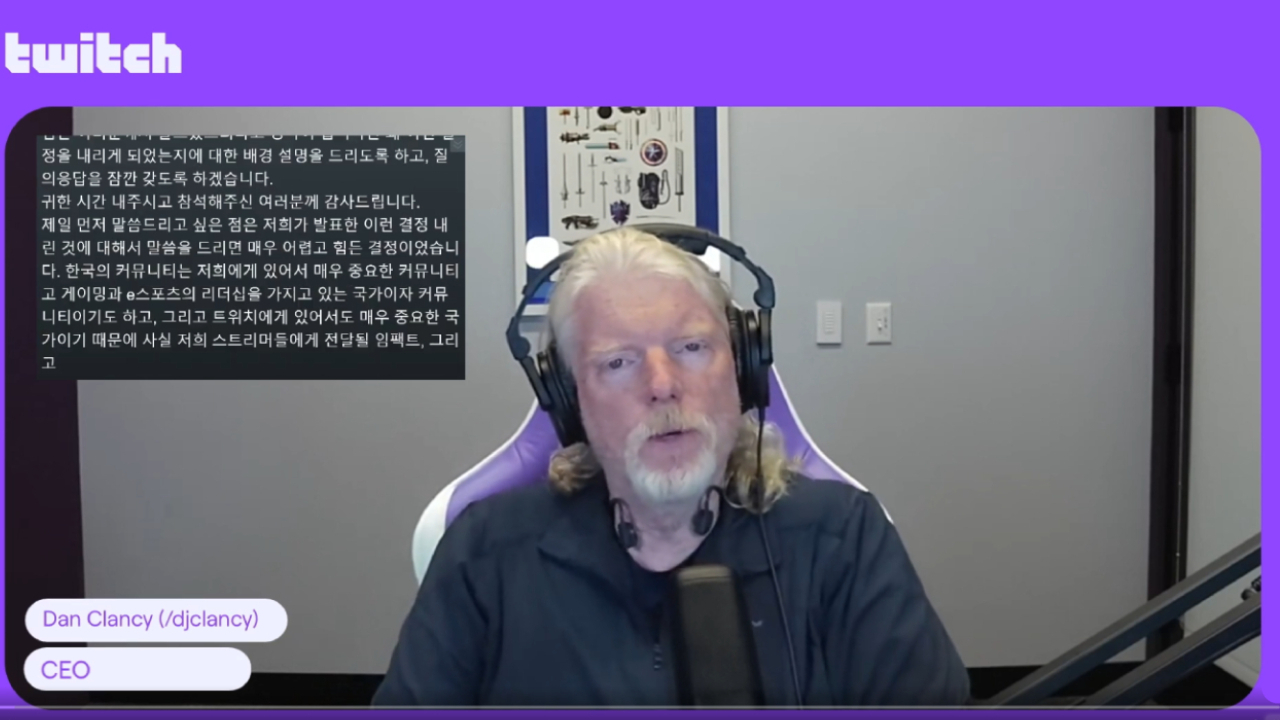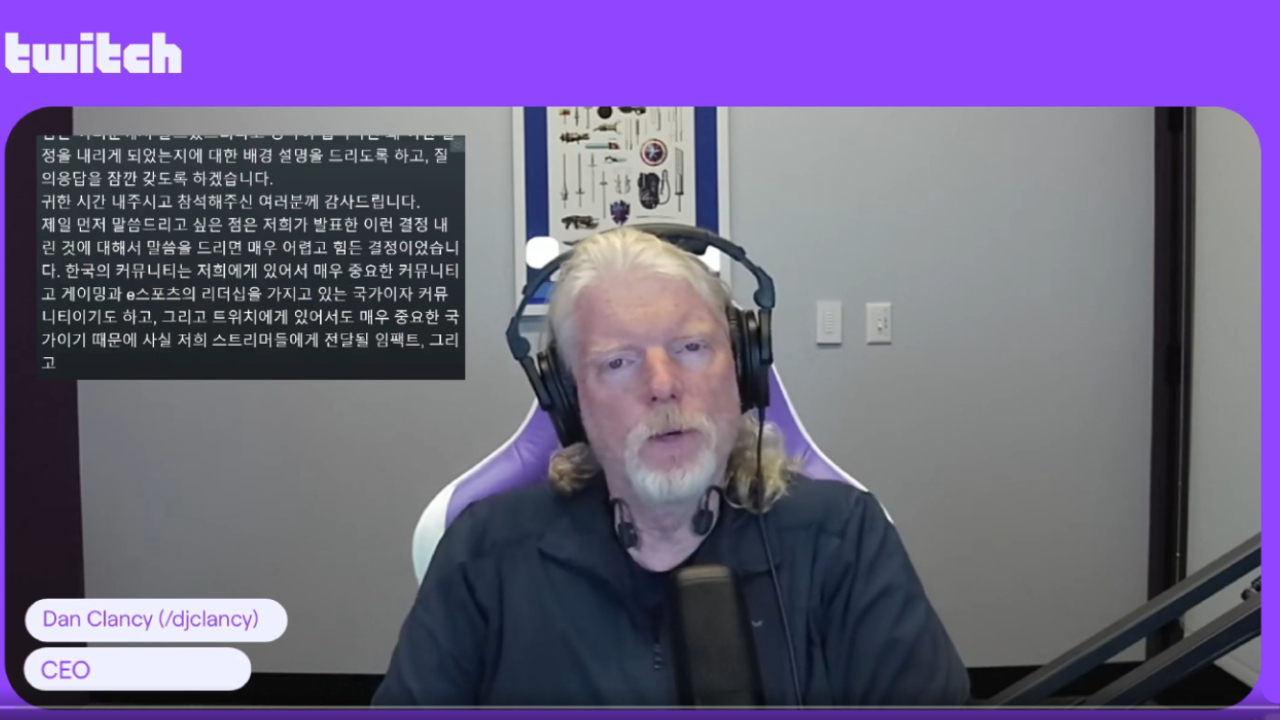Twitch CEO Dan Clancy confirmed that Twitch will shut down their service for South Korea, their largest market in Asia, because it was apparently too expensive to operate.

Twitch has been struggling to cut their costs, even resorting to new ad policies, taking a larger cut from their creators and more. Now they have decided to shut down support for their largest user base in Asia, South Korea.
Dan Clancy Announces That Twitch Will No Longer Operate In South Korea
On December 6, Dan Clancy, the new CEO of Twitch, revealed the news on their Korean channel and provided further information to the affected users. As the original announcement is hard to understand for English users, they also released a statement in text form, explaining exactly why this decision has been made.
Apparently, operating in Korea was just that much more expensive, which is why they decided to cut their losses and leave their biggest Asian market behind after exhausting all other options. In their statement, Clancy explains how they tried different solutions, like experimenting "with a peer-to-peer model for source quality" or adjusting "source quality to a maximum of 720p".
In the end, "network fees in Korea are still 10 times more expensive than in most other countries", which is why Twitch operated at a serious loss in South Korea and decided to shut down their support for the country.
Clancy then went on to assure users from other countries, that this was a unique case and that the operating costs in Korea were just that much higher than anywhere else!
He then went on to explain how they plan to support Korean streamers in transitioning to alternative livestreaming services in Korea with their communities. To do so, they reached out to those streaming services and promised to reach out to the affected streamers.
This is a pretty heavy blow for streamers like Jinnytty, who, despite streaming from Korea, have a large Western fan base.
Maybe some of them will consider migrating into the USA, but so far the situation has yet to fully settle in, so we can't know for sure.






























